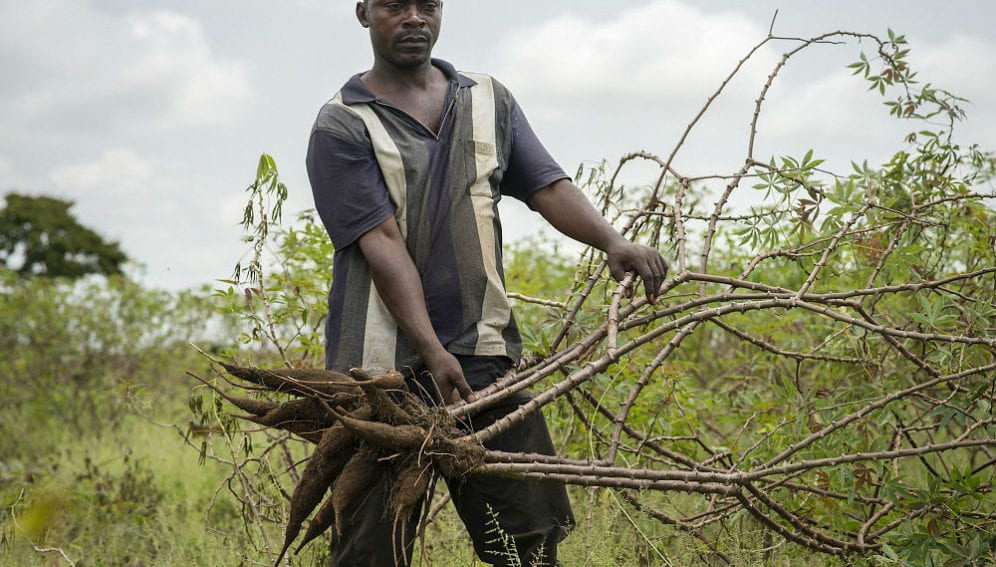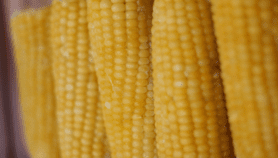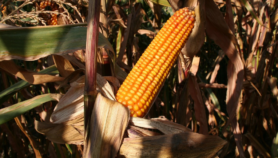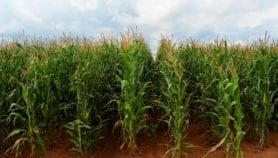By: Duncan Mboyah
Send to a friend
The details you provide on this page will not be used to send unsolicited email, and will not be sold to a 3rd party. See privacy policy.
[NAIROBI Kenya has launched 14 mobile applications to help farmers transfer technologies that enhance agricultural productivity and trade.
The mobile apps target crops such as avocado, banana, cassava, maize, guava, cowpea and potato.
According to experts, Kenya is transforming its agriculture given that old ways of delivering important services to populations are becoming obsolete as new knowledge become available to societies globally.
Boniface Akuku, director of information and communication technology (ICT) at the Kenya Agricultural and Livestock Research Organization (KALRO), says that the applications are set to usher in a new revolution that will help lower prices for consumers, contribute to smart agriculture and motivate farmers to increase their production.
“We are digitalising our agriculture to help ease agricultural processes, boost electronic commerce and provide open data for future farm use.”
Mwangi Kiunjuri, Ministry of Agriculture and Irrigation
“It will help farmers acquire genuine information unlike the conventional models that are open to farmers receiving wrong information that lead to growing of fake and unrecommended seeds,” he says.
Akuku explains that the KARLO funded the creation of the mobile applications and the launch of the 14 apps follows three others launched in April 2017 that targeted indigenous chicken, range pasture and seed production and dryland crops.
“The platform will help improve research data democratisation and insights to inform policies particularly on improving smallholder farmers’ livelihoods,” he explains.
According to Akuku, the mobile apps launched last month (29 May). would help the youth to adopt farming as a business and replace elderly farmers.
He notes that the apps are to help farmers identify and prevent crops pests and diseases that affect crops, and know the time for planting seeds.
Semi-literate farmers who do not operate mobile phones would be assisted by their children and opinion leaders within their communities. The applications require use of the internet, and farmers will access them at their own cost, says Akuku.
Mwangi Kiunjuri, Kenya’s cabinet secretary for agriculture and irrigation, says that the digitalisation of agricultural value chain in Kenya will facilitate farmers’ access to markets. “We are digitalising our agriculture to help ease agricultural processes, boost electronic commerce and provide open data for future farm use,” Kiunjuri notes.
Kiunjuri adds that ICT could be harnessed for overall agricultural and rural development. “The launch has come at the right time and is good for the agricultural sector that has remained dormant for some time,” says Bitange Ndemo, a senior lecturer, School of Business at the University of Nairobi in Kenya.
According to Ndemo, the mobile apps will help farmers receive necessary information regarding land preparation, planting and climate change.
“We hope the new applications will help reduce post-harvest losses that is a big challenge in the country,” he adds.
Mary Indeche, a smallholder from Bungoma in western Kenya, tells SciDev.Net that the mobile applications will help reduce pest invasion by enabling farmers report new cases in good time.“The mobile apps have come in handy in the absence of agricultural extension officers. It will therefore, provide us with the much needed information and reduce postharvest losses,” she adds.
This piece was produced by SciDev.Net’s Sub-Saharan Africa English desk.














